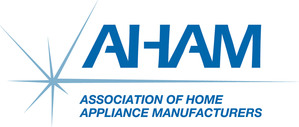WASHINGTON, June 2, 2023 /PRNewswire/ -- Congress is set to vote on the Save Our Gas Stoves Act, which would block a proposed Department of Energy regulation that would result in longer cooking times and the loss of many valued gas stove features.
The bill aims to block the U.S. Department of Energy's proposed standards for cooking products. If the standards take effect as proposed, consumers will lose almost an entire day each year simply waiting for water to boil. They will also see radical redesigns of gas ranges. The DOE's own analysis of the standards found that 96 percent of existing gas cooking models would not meet the proposed standards.
The Association of Home Appliance Manufacturers, as part of its ongoing effort to ensure consumers continue to have access to a full range of cooking options and features, is urging consumers to contact their representatives in Congress to ask them to support the Save Our Gas Stoves Act (H.R. 1640). The legislation would prohibit the DOE from implementing its proposed gas cooking appliance standard. Constituents may use this link to contact their representative in Congress.
DOE's proposed standard would be a major step back in gas cooking innovation. In addition to longer cooking times, AHAM's analysis has identified numerous other problems with DOE's proposed standard, including serious flaws in testing and unacceptable redesigns that manufacturers would be forced to make. Specifically, AHAM found that:
- DOE's proposal threatens to eliminate the option of having more than one large burner. More than two-thirds of gas cooktops currently have more than one large burner, a feature that people who cook for large groups and families rely on.
- The standard would eviscerate low-input burners, removing the ability to melt, simmer and keep foods warm without burning. The result will be splattered and burned sauces.
- To produce ranges that meet the proposed standard, manufacturers would be forced to radically redesign gas cooking appliances in a way that reduces many features present on currently available models.
This overly stringent proposal is part of a slew of other stringent DOE appliance standards proposals that would have negative product utility impacts for consumers and cost impacts for consumers and manufacturers.
SOURCE Association of Home Appliance Manufacturers (AHAM)

WANT YOUR COMPANY'S NEWS FEATURED ON PRNEWSWIRE.COM?
Newsrooms &
Influencers
Digital Media
Outlets
Journalists
Opted In





Share this article